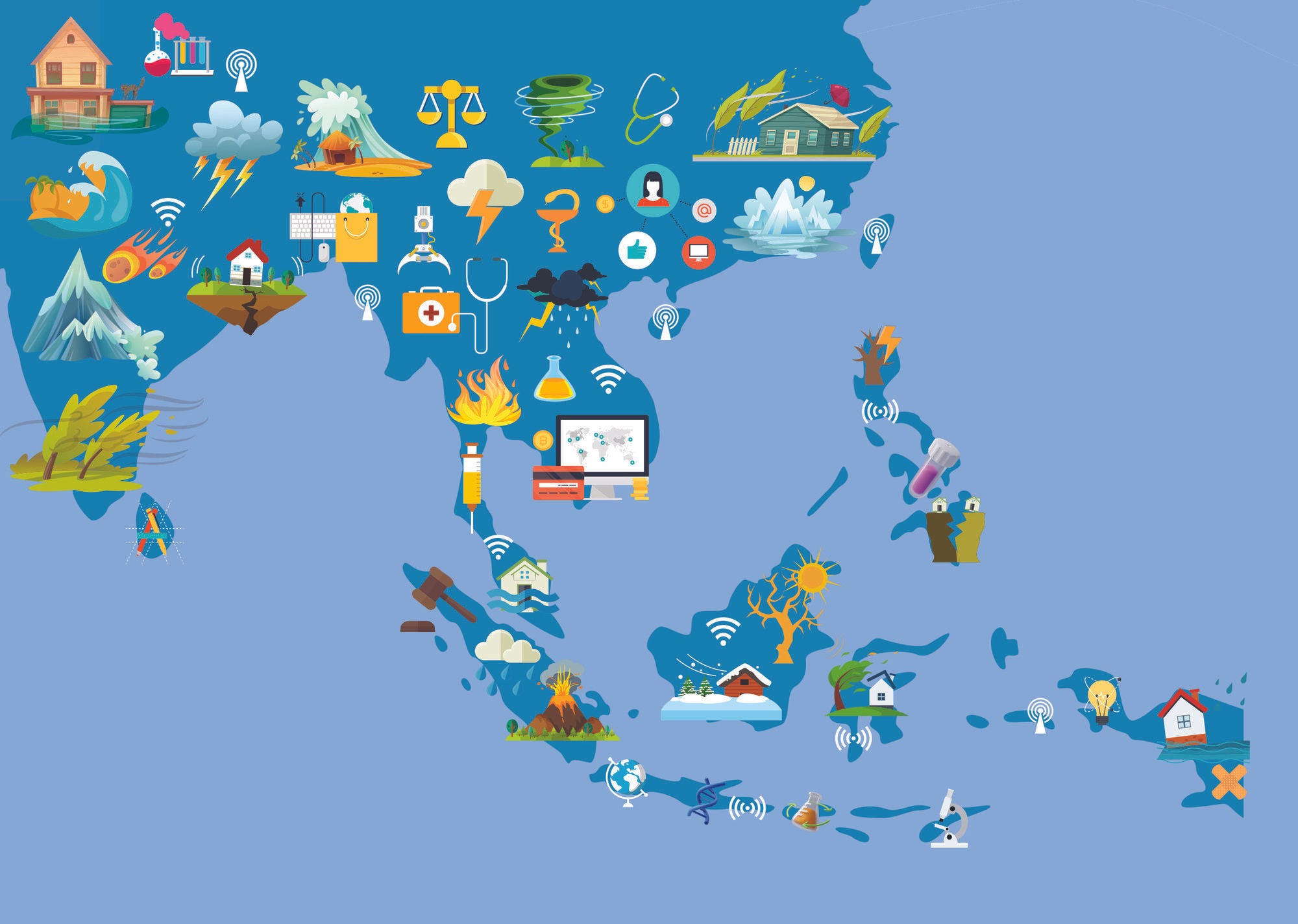The Economic Outlook for Southeast Asia, China and India is a regular flagship publication on Asia’s regional economic growth and development processes. It focuses on the economic conditions of the Association of Southeast Asian Nations (ASEAN) member countries (Brunei Darussalam, Cambodia, Indonesia, Lao PDR, Malaysia, Myanmar, the Philippines, Singapore, Thailand and Viet Nam) and two other large economies in the region, the People’s Republic of China (hereafter “China”) and India. The Outlook was proposed at a 2008 informal reflection group on Southeast Asia following the 2007 Council Meeting at Ministerial Level (MCM) and approved by ministers and senior officials from ASEAN countries at the occasion of the 2nd OECD-Southeast Asia Regional Forum in Bangkok in 2009. The Outlook was launched as a series in 2010 and the first edition was released in November of that year.
The Outlook Consultation Group (OCG) was established in 2014, consisting of representatives from OECD Delegations and Emerging Asian countries. Since that time, two OCG meetings have been held for each edition of the Outlook. The most recent OCG meeting in March 2024 was the 22nd of such gatherings. The Outlook was integrated into the OECD’s Southeast Asia Regional Programme (SEARP) at the Steering Group Meeting in Jakarta, Indonesia in March 2015 to offer a horizontal view of activities and provide a backbone for the different streams of the Programme as confirmed at the 2015 MCM. While previous Outlooks have typically been presented at the ASEAN or East Asia Summit, this edition was released at the OECD Ministerial Council Meeting in May 2024 during a session commemorating SEARP’s tenth anniversary.
This edition of the Outlook comprises three chapters. Chapter 1 presents the macroeconomic challenges and risks the region faces. Chapter 2 explores how countries in the region should take holistic and interdisciplinary approaches to developing amid disaster risks. Finally, a series of country notes provides the state of the disaster risks and disaster risk management in each Emerging Asian country, with recommendations for overcoming the challenges.
The OECD Development Centre is committed to working alongside governments and other actors in the region to identify key issues and provide policy recommendations for addressing them. The Centre enjoys the full membership of five Emerging Asian countries: China, India, Indonesia, Thailand and Viet Nam and this project has also benefited from the generous support of other Emerging Asian countries. The OECD is committed to supporting Asian countries in their efforts to promote economic and social well-being through rigorous analysis, peer learning and the sharing of best practices.
